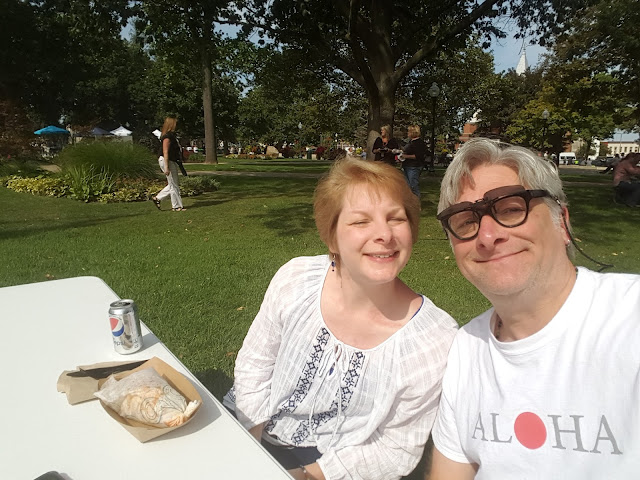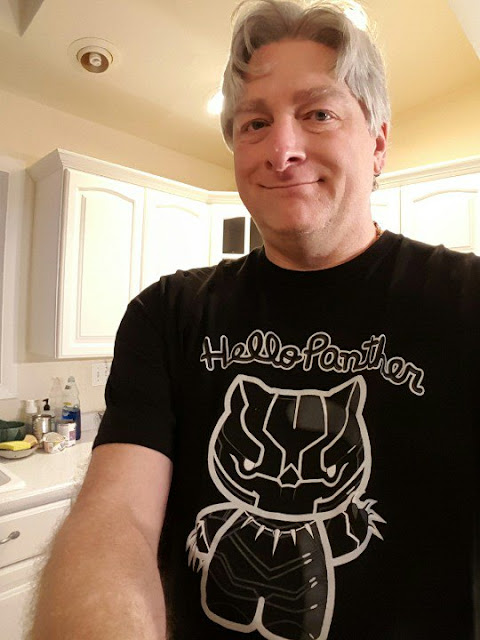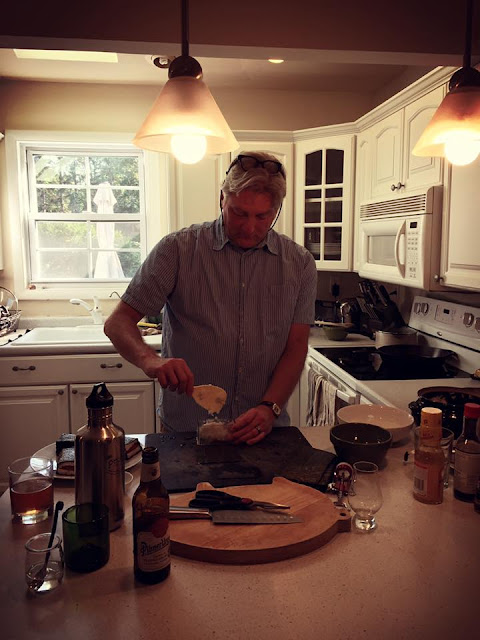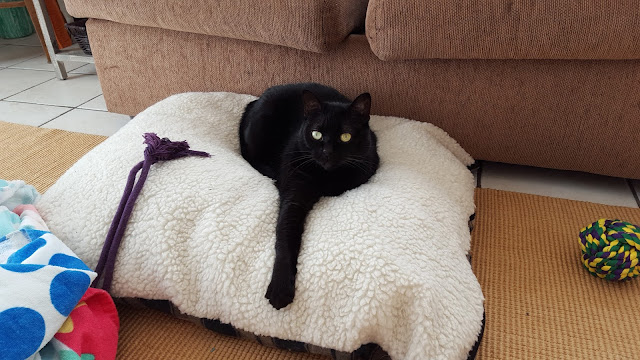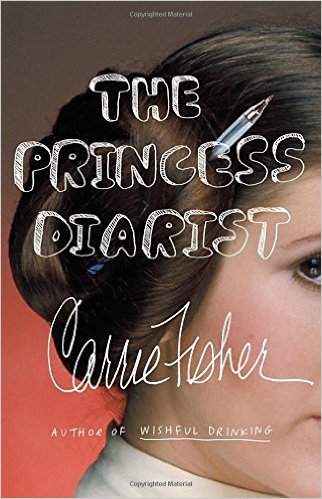It is such an odd occurrence to be in the southern hemisphere during the holiday season. We all think of snow, Christmas trees, Rudolph, Santa, and twinkling lights. We are usually busy in a hectic rush, madly shopping for the perfect gifts, organizing parties, and decorating our houses and preparing for our big Christmas feasts. We all think nostalgically or longingly for spending time by a roaring fire with family and friends sipping a hot drink to warm our souls while watching our favorite Christmas tales.
However, here I am in Africa sitting poolside in the scorching African sun with small fake Christmas trees at the shallow end of the pool being powered by the sun. I sit at this lovely pool, at my country inn, under the shade of an umbrella with an attentive staff attending to my every whim in the lap of luxury, but right outside my electric guarded gates people are squatting on someone else’s property living with no running water, electricity or heat in makeshift cardboard and tin huts. This is not my typical image of Christmas. Where are all the symbols of Christmas lore? Where are all the nostalgic trappings that make Christmas, well, Christmas? I am here in an ancient place, and I find myself searching for Christmas, perhaps in all the wrong ways and places.
My search begins one evening out with friends in a very kitsch Las Vegas-like piazza at a casino. While everyone (white) was sipping wonderful South African wine in a place that looked like a mini wannabee Las Vegas, I thought aha I found Christmas. I found a big Christmas tree in a center square of this faux Italy spot in Johannesburg. I smiled as they not only replicated their version of the Venetian in Las Vegas, but there was also a typical centuries old Christmas market complete with all the decorations of our childhood memories. Here in Africa a replica of my favorite European Christmas market, decorated with fake snow and every symbolic representation of what everybody’s “dream” of Christmas should be.
What does all of this mean? Was it out of place? Do we all have a shared symbolic representation of Christmas worldwide spanning continents, hemispheres, and cultures? This captured the Christmas spirit in the most unlikely place with temperatures upwards of 95 degrees in the middle of the African summer, or so I thought.
However, here in Africa I found something totally unexpected and the true meaning and symbolism of Christmas. While running a course in equine assisted psychotherapy in South Africa, I learned more than helping people with horses. I learned about true dedication to humankind and the real meaning of what Christmas should be about.
One Saturday 200 children from a neighboring shantytown; Diepsloot came to celebrate the only Christmas they will most likely have, thanks to Sharon Boyce of Shumbashaba. Sharon began a few years ago when a few kids from the shantytown started turning up. In the beginning it was only a handful of poor children from the neighboring shantytown. Today, hundreds of children from the most abject poverty I have ever seen spent their usual Saturday at Shumbashaba; a safe haven for so many children. It was complete with Santa, presents, food, music and games.
Different groups came together a few years ago to help a few children who came around after school. This horse farm became a safe haven for kids. What they noticed was that these kids were hungry and they began an outreach program bridging the gap between black and white, rich and poor to help the nearby kids. Now every Saturday the kids come and work with each other, the community and the horses and they are provided a good healthy nutritious meal. They are learning here how to get along in life and the skills they need. They are learning that Shumbashaba is a safe haven for them, where they can play, learn and be kids for a few hours and get a healthy meal.

When I went outside and saw this beautiful scene of people from many walks of life, cultural backgrounds and socio economic status’ working together in the name of the children, I realized this was finding Christmas in Africa. So, this year while indulging in large Christmas feasts and celebrations about indulgence, truly think of the poor starving children I had the pleasure of meeting for a brief moment that changed my life.
The selfless devotion of the people making this all possible in this small grass roots community effort actually makes a difference. As more and more children come to Shumbashaba this becomes not only a safe haven and healthy meal, but also a place to learn and find coping skills in their poverty stricken communities. I realized that under the blazing African skies lies people who really care about the community and don’t view giving of themselves as a once in a while occurrence but a way of life.
Maybe this year instead of buying all the frivolous trappings of the season; the true spirit of Christmas is about opening our hearts and spirit to those in need. So in the middle of summer here in the Southern Hemisphere, yes I found the usual symbols of Christmas, but also the true inspiration of people struggling together to make a difference.
Giving really does feel so much better than receiving. This Christmas party for all theses children in need gave me hope, serenity and a feeling that one small act of giving can make a huge difference in someone’s life. At the risk of sounding cliché perhaps Christmas symbolism is all about Scrooge opening his heart to help those right in his own back yard that are in need. There is a reason we have these symbolic tales, but perhaps we are not listening to the symbolic message.
It turns out that Christmas began as a celebration of the sun solstices and is as ancient as human kind. All of our modern symbols of Christmas actually have meanings dating back to prehistoric times. Here in South Africa there is a major archaeological site of great importance dating back some 3 million years. This site called The Cradle of Human kind, and it is thought to be the beginning of humankind where we all originated. So it seems Christmas may actually be more apropos here where humankind began.
Yesterday I visited The Cradle of Humanity, a world heritage site, where 60 meters down in a cave the first human “ Mrs. Ples” was found. You see we all originate from the same place and are more alike than different. Deep down in this cool dark cave I observed the millions of year old rock formations and there by the side of a large underground lake was a rock formation of Mary Magdalena. Christmas is all around me in Africa much to my surprise. I wish we could all continue this Christmas spirit of helping and opening our hearts and minds to those around us in need.
We share a feeling of nostalgia during the Christmas season no matter where we are in the world. No mater where we come from, every culture has a symbolic representation of what this holiday must include. So what do we need to make Christmas seem and feel like Christmas? We need some of the symbols that give us that holiday spirit and warm fuzzy nostalgic feel. Here is a list of a few of the iconic Christmas symbols I found in Africa:
- Santa—Chocolate Santa’s at Woolworths, Santa at a children party helping the community
- Candy cans at Woolworths
- Snow at a Christmas market at a casino
- Rudolph flying above a casino piazza
- Christmas tree at the Piazza Monte and small carved and beaded trees made by the locals
- Mistletoe hanging under the door way at a convenience store where I bought some mosquito spray
- Christmas trees twinkling at the shallow end of the pool at the country inn I am staying
- Presents donated so no child goes home hungry or without a gift. The gift however is the loving and caring people who make these children feel worthwhile
How to say merry Christmas in Africa:
In Akan (Ghana) Afishapa
In Zimbabwe Merry Kisimusi
In Afrikaans (South Africa) Geseënde Kersfees
In Zulu (South Africa) Sinifisela Ukhisimusi Omuhle
In Swazi (Swaziland) Sinifisela Khisimusi Lomuhle
In Sotho (Lesthoto) Matswalo a Morena a Mabotse
In Swahili (Tanzania, Kenya) Kuwa na Krismasi njema
In Amharic (Ethiopia) Melkam Yelidet Beaal
In Egyptian (Egypt) Colo sana wintom tiebeen
In Yoruba (Nigeria) E ku odun, e hu iye’ dun!
Many South Africans have their traditional holiday meal of a barbeque or braai, or the traditional big Christmas roast even though it is hot and sunny. In east Africa they roast a whole goat. Christmas gift giving is not as commercial as in the USA and northern Europe. If you want snow and the symbolic white Christmas, you would have to go to the Atlas Mountains in Morocco. Caroling is also popular here, and I found posters adverting Christmas caroling everywhere.
Even in Muslim countries one can find the symbols of Christmas, and in many of these countries Christmas is a national holiday. The most common gift is a new outfit, books, supplies, etc., not the frivolous gifts westerners typically indulge in.

In African culture and civilization, this time of year was about the Earth, relationship of the stars, sun and seasons, which effects every living thing on Earth. This time of year in ancient Africa was important as the birth of the sun; many of the traditions were really about the rhythm of the Earth and heavens. The ancient Africans acknowledged these thousands of years ago. Over time different cultures have adopted these ancient traditions and infused them with their own cultural stories.
Today at a crafts fair in Africa, while under the scorching African sun, there was Christmas everywhere. I found old and new woodcarvings of nativity scenes made from a variety of different local woods and materials. I found beaded ornaments with African symbols and green tree branches to decorate and put into homes much like our traditional Christmas trees.
The ancient celebration of the sun and solstices and what was happening in nature and on Earth is metaphoric for the adopted stories that later shaped our modern practices of Christmas spanning many cultures.
Myths are important as they teach us many things about our history and natural occurrences on Earth and in life. These myths transcend time and space and are relevant to all cultures from ancient to modern time. Myths while not true contain truths and lessons and symbolism that are important.
With our modern commercialism of the holiday season we have lost our symbols and important myths, erasing important traces of why we celebrate and the meanings associated. The history of the holiday season has brought new meaning for me by looking at the ancient and the history of humankind.
Stores are decorated with all the symbolic regalia, Christmas is here and the festive atmosphere just comes and is symbolized in a way that suits the culture, climate and people. In Northern Africa December 25 marked the rebirth of the sun, the winter solstice. It is the birthday of the African God Ra or Osiris. When you decorate your modern day Christmas tree, you are actually reenacting the Ancient African tradition of decorating an Egyptian tree that bore fruit and you are reenacting or symbolizing an African legend or myth.
So maybe I am celebrating the Christmas season in the very place it originated with the symbols that are closer to where they all began. Maybe here in the most impoverished communities I learned that Christmas means giving and making a difference. I found Christmas in Africa… and I found symbols here, modern and ancient. I found a wonderful tradition of old and new. Maybe I just needed to make meaning out of the symbols I found under the hot African sky.
Here is how I found Christmas in Africa: “Ubuntu”, is an ancient African word meaning ‘humanity to others’. It also means ‘I am what I am because of who we all are’. Ubuntu is an idea from Southern Africa, which means literally “human-ness”, and is often translated as “humanity towards others”, but is often used in a more philosophical sense to mean “the belief in a universal bond of sharing that connects all humanity”.


